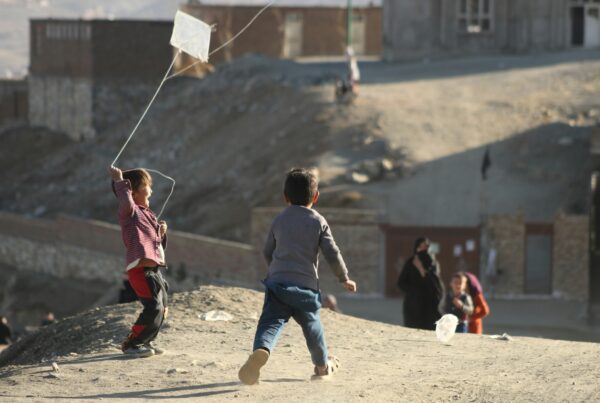by Carla Williams
The first time I wore glasses, I was shocked at how different the world looked. I had no idea the clarity I’d been missing. Before glasses, I was getting the gist of the view, but missing the details. Those lenses changed everything.
That’s how I feel about trauma.
Before I learned about the life-changing impacts trauma has on the brain, the heart, and the body, I was seeing the gist of the people around me, but missing the details. I could see the behaviors, but not the reasons behind them.
Trauma and Consequences
There are several different types of traumas, and individual reactions to each one. Some traumas happen once and leave a lifetime impact, and some are ongoing for months or years.
Each person reacts to the trauma in their lives differently, depending on the severity, their connection to safe people, and their access to healing. Trauma can include everything from death, abuse, divorce, hunger, neglect, bullying, natural disaster, poverty, and much, much more. Almost everyone you meet will or has already experienced trauma in their lives.
Trauma can literally rewire the brain. There is a lot of science to it, but the idea is that trauma can trigger a whole range of emotional, physical, and spiritual consequences. It affects how we react to situations, how we approach other people, and how we relate to God.
Trauma and Sin
As my parents taught me when I was a little girl, hurt people hurt people. In many situations, trauma is directly connected to sin, both through the consequences of sin from other people and as we react in sin to what’s going on inside us.
Learning the depth of this truth has forever challenged and strengthened my compassion — with myself, those nearest me, and even strangers on the street.
Have you ever seen a panhandler on the corner? It’s easy to feel superior from the inside of our cars without knowing any of that person’s life. Do you know who is most likely to end up homeless, addicted, or suicidal? Those who have suffered severe childhood trauma. (See the data here!)
I’m not saying our behaviors and decisions should all be dismissed because of trauma. I’ve just learned that our reasons are often far more complicated than we knew.
And, trauma, like sin, is a cycle. What’s done to us affects what we do to others, which affects what they do. It could keep going forever — destroying relationships, hindering our ability to grow and thrive, and robbing us of all hope.
But that’s where God’s beautiful redemption enters the picture.
Trauma and Healing
Do you know the scientifically proven, medically documented cure for the damage caused by trauma? Relationships.
Within loving, steady relationships, the brain can rest. It no longer needs to remain in a constant state of terror, always assuming something awful is coming just around the corner. It starts to feel safe, and then there is healing. There’s hope again.
That’s not to say there’s not a lot of hard work that goes into healing. Counseling, various therapies, meditation, coping tools, medical intervention, spiritual healing and more all play a role. But God designed us for one another, and in community with Him and others, we begin to break the cycle. Not instantly. Not without backward steps. Not without intentionality and grit and a whole heap of grace. But gingerly, cautiously, hopefully forward.
Trauma and Missions
If trauma so dramatically affects individuals, just think of what it does to entire nations who, generation after generation, have lived in war, violence, poverty, pressure, or hopelessness. Where are the steady, healing relationships in a nation where every single person is in their own valley of loss and despair?
This is one of the major obstacles – and urgencies – for the unreached world. The Church has the opportunity both to address the sources of trauma in these places and also offer open-handed hope. We should be seeking justice to help remove the trauma, providing physical and emotional support, and offering the life-giving joy of the Gospel.
Because sin is rampant, trauma is everywhere. Because Adam and Eve ate the fruit in Eden, our lives are full of brokenness. All of our relationships are broken because of sin. We can no longer walk shamelessly with God. We fight and strive with one another. We don’t even know our own hearts anymore. Even our relationship with creation was severed, leading us to droughts, wildfires, floods, storms, and literal plagues of locusts.
It’s no wonder we see trauma everywhere.
But the Gospel restores and redeems this brokenness. It calms the storm. It gives us a new heart. It heals and draws us near to one another. And it invites us back into the Presence of God.
Jesus is the only hope for a hurting world. He is the only hope for our own, broken hearts and He’s the reason we go compassionately into the broken nations.




